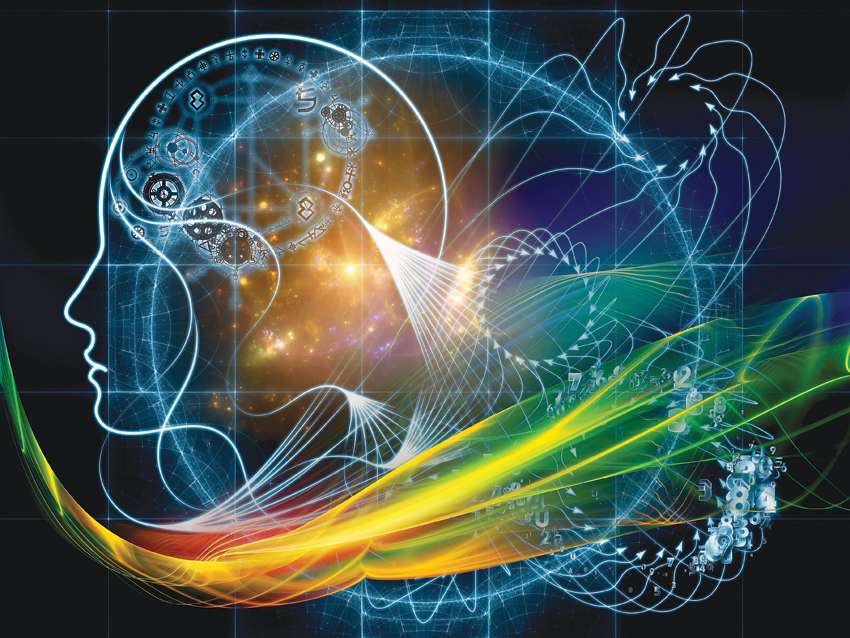


T V Sarnga Dharan Nambiar -
MUSCAT, MAY 19 -
I finished downloading my consciousness onto my laptop, for easy reference and safe storage. A bit bored — and fed up with the foxy, superfluous ways of the world — I toggled on the media player to watch my cherished memories that I recorded a few years back. Enough, I thought, and promptly shared my real-time emotions on social media for my friends to “experience” rather than read. Hmm... quite a time pass! And, just to keep you in the loop, I’ve already signed up with a tech firm to digitise my complete personality, so that I can continue to chat with you, post my life term on earth.
This is the future we aspire for. Isn’t science wonderful? Already, space tourism is almost a reality, with amazing advances in craft reuse technology and other disruptive innovations. So future can be manipulated in bizarre ways.
When Mikio Kaku, one of the foremost theoretical physicists of our times and an apostle of String Theory, wrote The Future of The Mind: The Scientific Quest to Understand, Enhance, and Empower the Mind — we knew anything is simply possible. In his earlier book The Future of Physics, he gave us ample glimpses of the physics of the future.
Our mind, which is what consciousness is all about (for most purposes), will soon cease to be that mysterious, believes Kaku; and he points to amazing developments in the field of neuroscience technologies.
Come to think of it, is our consciousness just a bunch of neurons? The brain, according to Kaku, is a computer (made of meat), and is basically an engineered construct. We are not far from manipulating our own consciousness as we do with digital devices.

Mikio Kaku postulates that in the near future we can record memories and have them played back into another’s brain by stimulating associated neural activity patterns. What’s more, machines will advance so much as to transmit thoughts instantaneously.[/caption]
Already, by comparing the database of neural responses to the observed fMRI patterns in a person viewing a film, researchers can reconstruct a reasonable facsimile of the film, which means it is not impossible for scientists to track the dreams of a person connected to an fMRI machine.
Taking off from here, Kaku postulates that in the near future we can record memories and have them played back into another’s brain by stimulating associated neural activity patterns. What’s more, machines will advance so much as to transmit thoughts instantaneously.
Silicon-powered self-consciousness and even alien minds are quite possible, he thinks. He brushes aside overhyped concerns about highly empowered robots ruling over us, and asserts that breakthroughs in silicon computing will not serve the interests of robot overlords. Another key point that Kaku holds dear is the “connectome”: the explicit account of each neural connection in our head. Using connectome, it should be possible to reverse-engineer a person’s brain; and by reconstructing the connectome in a computer one can download oneself into the machine. Thus mind is ensured eternal life.
But still there are many who question Kaku’s theory that a person is nothing more than his or her brain’s connections. The being of a person can be much more than an engineered construct, they argue.
Kaku uses the ‘space-time model of consciousness to delve deeper into the mystery of mind. The model offers a graded scale of awareness based on the number of feedback loops between environment and organism; and humans represent the highest level of consciousness with our ability to traverse space and project ourselves mentally in time both into the future and past.
One of Kaku’s critics is Adam Frank, a professor of astrophysics at the University of Rochester and the author of “About Time: Cosmology and Culture at the Twilight of the Big Bang.” He points out that Kaku fails in solving the “essential mystery of our lives — the strange sense of presence.” If we’re to advance anywhere near a final theory of consciousness, we had better focus on the complexity of our own experiences, Frank says, adding, simplified descriptions of lower-level structures like neurons don’t do justice to nature’s magnificent creative potential. He even toys with the idea of a rudimentary form of consciousness when considering the basic building blocks of the world such as mass and electric charge.
While Kaku daringly explores the future of mind, there are several questions left unanswered, especially those related to principles and ethics. With disruptive technologies ‘creating’ a world of its own realities and values, what sort of a future will we inherit if we treat minds as mere meat-computers, asks Frank.
A very pertinent concern, indeed.
Oman Observer is now on the WhatsApp channel. Click here



